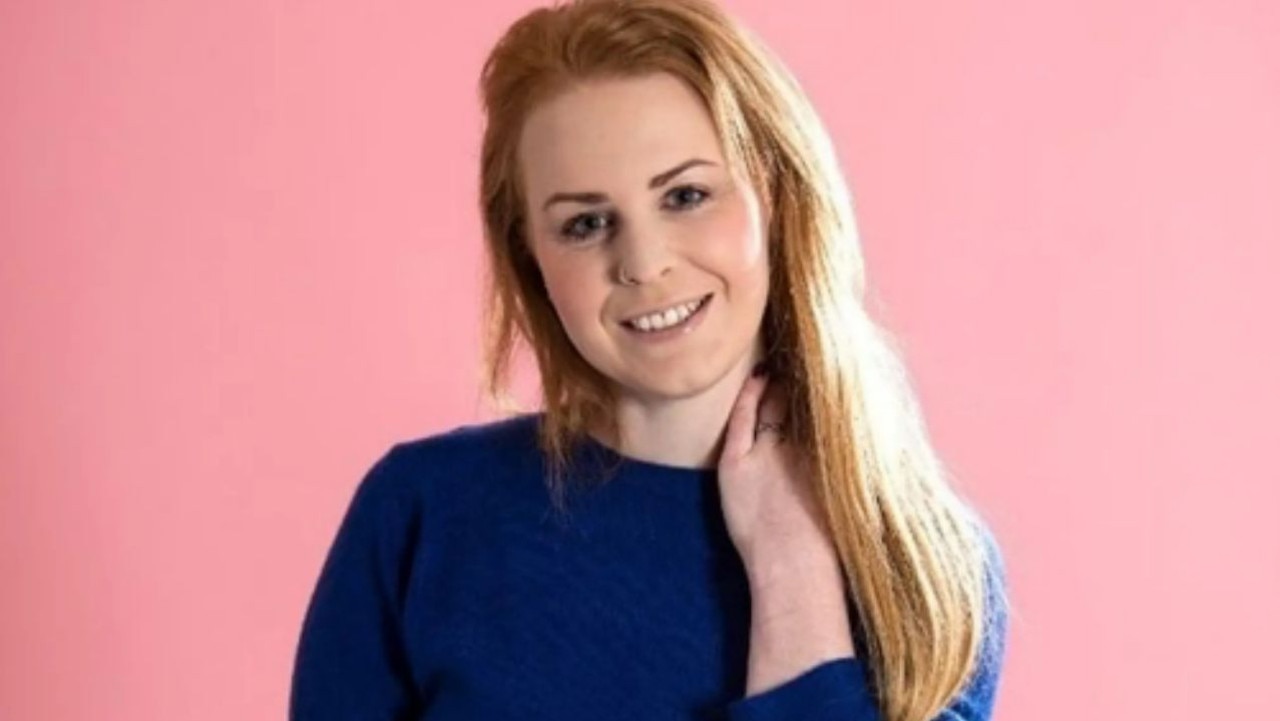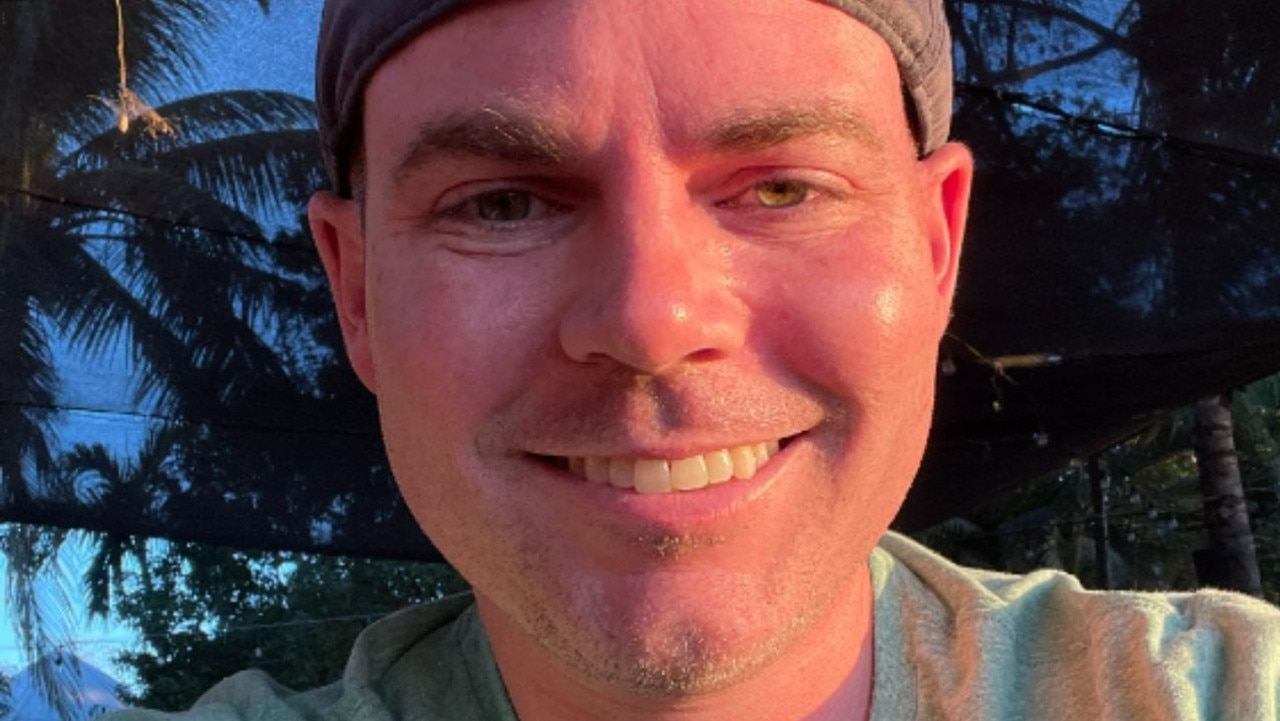‘Not programmed to be monogamous’: Swinging sexpert teaches couples how to share
A $160/h sexpert has found her niche teaching couples how to open their relationship.

Ten years ago, when Rosie Kay’s then-boyfriend, Gary, suggested they become ethically non-monogamous, or swingers, she was “terrified” of opening up their bed to other people.
Today, Kay is a certified first-time swingers coach, helping married couples get into the sexual swing of things.
“There’s a connotation that swingers are seedy, sweaty people who toss their keys into a bowl to determine who we’ll have sex with that night,” Kay, 34, from London, reports The New York Post.
“But real, genuine swinger couples communicate [with each other] about the sex that they’re having [outside the relationship] beforehand. It’s not about just having random sex with strangers.”
After Kay, who identifies as bisexual, and Gary explored the swinging lifestyle with other couples and singles, they discovered that being ethically non-monogamous allowed them to relish their relationship while enjoying new sexual romps that they may not have otherwise encountered.

“We were on this exciting journey together and it was purely about making physical and sexual connections,” said Kay.
She initially feared Gary would end up leaving her for another woman if they became swingers. “But once I realised that he and I were rock-solid in love, I overcame that fear of abandonment and accepted the fact that even though there might be other women involved who are younger or slimmer, [Gary] won’t think of them to be better than me,” she said.
And after their amicable spilt a few years ago, Kay began researching ethical non-monogamy online. She came to believe that the swinging lifestyle is actually the “more natural” way to love. Her curiosity took her back to school, where she studied relationship counselling and was certified by the Complementary Therapists Accredited Association.
“As humans, we’re not actually programmed to be monogamous. Society has just progressed in that way,” insisted Kay, who, over the past two years, has virtually helped couples and singles in the UK and the US consensually explore extramarital intimacies with others.

Before Brooklynite Scott Scharphorn sought out Kay’s sexpertise last month, he was struggling to meet women and couples who were interested in swinging with a single man.
“It’s more difficult being a single man in the [swingers] universe because there’s a stigma that single males in this lifestyle have questionable intentions,” Scharphorn, 41, who works in finance, told The Post.
He’d previously been in an ethically non-monogamous relationship and said the lifestyle brought him and his girlfriend “closer together as a couple and helped us meet some really awesome people.”
Last month, he hired Kay to assist him in dating as a solo swinger, and has since made new connections within the community.
“Rosie’s helped me come up with what to say when I’m approaching other swinging couples and women as a single male,” said Scharphorn. “And even though she’s in the UK, she’s done a lot of research on swinging sites and clubs [in New York], and that’s helped improve my approach in-person and on my swingers dating profiles.”

Scharphorn, Kay said, is one of a growing number of people interested in the lifestyle.
“As more people are starting to go out and live life again [after] spending time together during the lockdown, they’re now more open to exploring ethical non-monogamy,” she said.
Most of Kay’s clients are ordinary, everyday couples in their mid-30s and early 40s who’ve been together for about 10 to 15 years. On average, the majority of the pairs are either interested in having a threesome or the male partner wants to watch as his wife or girlfriend has sex with another man.
But the lovers are afraid to take the sexual leap, owing to concerns that becoming swingers might ruin their relationship.
“One of the first things I do with my clients is retrain their brains or deprogram what they’ve been taught about ethical non-monogamy,” said Kay. For an hour-long counselling session via Zoom, she charges singles around $72. Couples pay $109. And all of her clients book a minimum of three sessions.
“And that starts by teaching them self-acceptance,” she said.
“We talk about sexuality, and why it’s OK [for them] to want to be with more than one person to explore things sexually. And I assure them that their desire to try new things with other people doesn’t mean that they don’t love one another.”
In fact, Kay believes opening up a relationship to other sexual participants can reduce a partner’s urge to cheat.
“Some people do think [swinging] is immoral, but a lot of people cheat and act immorally within monogamous relationships,” she said.
“Swinging won’t stop someone from cheating,” she continued. “But it minimises [the risk] because you get to act on those [unexplored sexual] impulses, and you get to have a much deeper and honest relationship with your partner.”
After helping patients cope with any lingering hang-ups about enjoying sex with their partners and others, Kay walks the couples through a multi-step process toward a successful swingers’ sex life.
Here, she shares her tips for couples looking to open up their bedroom.
Step 1: Vulnerability is key
Kay first teaches pairs how to establish open, honest and clear channels of communication with one another.
“Being vulnerable can be very scary, but it’s important in ethical non-monogamy,” she told The Post. “You have to have a lot of conversations [with your partner] about [your swinging desires]. And unless there’s clear communication and boundaries that are set, it could jeopardise a relationship.”
Step 2: Rules of play
Next, Kay aids her pupils in protecting their relationship by setting strict rules around their physical and emotional escapades with others.
“We have to identify the type of ethical non-monogamy that they want to explore. And then put laws and boundaries around it,” said Kay. “When a couple is guided by a set of rules and goals that are mutually beneficial, it adds a sense of security, comfort and reassurance to both partners.”
Adhering to agreed-upon limitations also helps diminish feelings of insecurity and jealousy, according to the poly pundit.
“I tell my clients: ‘Yes, there will be other people involved with you in a sexual way, but it’s purely a physical sexual connection. Another person can’t compete because [through coaching we’re assuring] that your relationship is emotionally exclusive.’”
Do swingers have perfect bodies?
— thiskindagirl2022 (@thiskindagirl22) June 20, 2022
I have had the absolute pleasure of meeting so many different men and women over the years. All of various shapes and sizes. Do you know what I remember the most?
How confident they were, regardless of their body type #swinging#swingersparties
Step 3: Meeting their match
Once the couple has established a firm foundation, Kay teaches them the do’s and don’ts of hooking up with other swingers.
“The best way to meet people is either an online platform or visiting a swingers club because you’re all there for the same reasons,” she said.
For those hoping to connect virtually, Kay often assists her clients in navigating popular swinger sites like FabSwingers or SDC.com. And if the sweethearts are more interested in meeting like-minded partners in person, she points them toward the hottest swingers clubs in their area.
But Kay strongly advises against sidling up to strangers at the supermarket and asking if they’d like to swing.
“It’s not something I recommend doing in regular life, at a club or a grocery store,” she said with a laugh. “You could approach people like that, but not everyone is comfortable in that kind of situation.”
Step 4: Dress to impress
After her clients have determined how they’d like to find other swingers, Kay assists them in creating their “perfect” first ethically non-monogamous experience.
“I advise couples on how to approach other couples in swingers clubs and how to talk to them about what they would like to experience,” said Kay
“I also advise on what to wear and what not to wear,” she said, noting that she urges the daters to wear something comfortable that fits the vibe of a classy, upscale swingers lounge. “No sweatpants and no [sneakers].”
A few years ago, I was in an open relationship with a bisexual man, this relationship taught me that the greatest gift you can give your partner is freedom for them to be themselves. #openrelationships#Nonmonogamy#bisexual#RelationshipGuidelines#swingersuk
— thiskindagirl2022 (@thiskindagirl22) May 28, 2022
Step 5: We’re in full swing
Once all the prep work is complete, Kay sends her couples on their first outings.
More Coverage
“After their initial swinging [exploration], I’ll lead the couple in an open discussion about their reactions and responses to what they’ve just experienced,” said Kay.
“Sometimes we have to work though jealousy issues or emotional problems or some glitch that came up. It’s an ongoing and gradual process.”
This story appeared in the NY Post and has been reproduced with permission





